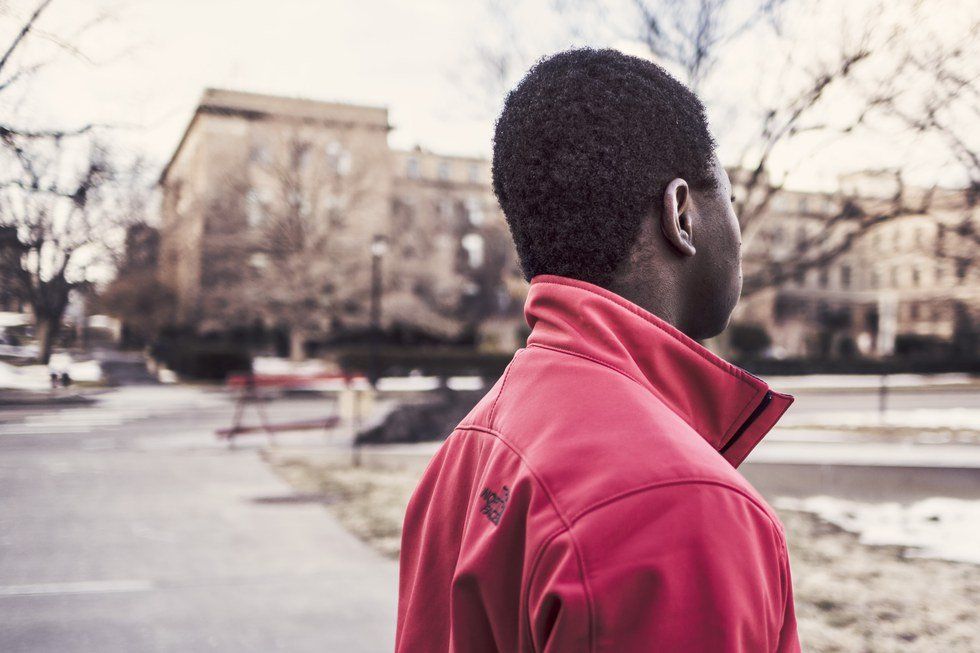America, land of the free and home of the brave…
Then how is it that the country that proclaims freedom in every corner makes up about 25% of the world’s prison population, but only accounts for 4.4% of the world’s population? Currently about 2.2 million people, with African Americans alone making up about 1 million, are locked away in US prisons. This illustrates the 500% increase of Americans behind bars in the last 40 years.
We like to believe that we have solved past challenges, but we have only made them less obvious. For example, even though slavery was abolished, the Thirteenth Amendment provides a loophole: imprisonment. Private prisons are modern-day plantations, profiting off the backs of minorities.
While it is true that the federal government recently broke its contract with federal private prisons for good, this isn’t a reason to jump up and down in excitement. Only about thirteen federal private prisons existed in the first place. The vast majority of private prisons exist at the state level and will continue in operation, unaffected by this policy. Just as startling is the fact that all immigrant detention facilities are not a part of this change and will continue to be privately managed, neither for state nor federal level.
The law of supply and demands works the same whether we are talking about food supply, tickets for a basketball game, or in this case, human beings. Private prisons contracts require “lockup quotas,” with the most common bed guarantee being 90%. This means that state and local governments will only pay the guaranteed amount in the contract if that quota is met. In other words, private prison companies are charged for any empty beds. This creates a steady demand for prisoners in the favor of maximizing profit for these private companies, and if a new prison is built this creates an even larger demand. Politicians who are in favor of these quotas say they ensure that the tax payers money is not wasted. In essence, our government is maximizing the use of our budget at the cost of our freedom and making recidivism profitable for private companies.
In my interview with Florida Representative Mario Diaz-Balart, a supporter of privatization of prisons, he referred to the connection of private prisons and increase of inmates as "a conspiracy," pointing to the jury decisions of guilt and innocence being something that happens "case by case". However, when one looks at the involvement of these companies in politics, it becomes clear that an increase of lobbying for "tough on crime bills" on their part-- including mandatory minimum sentences, three strikes laws, and truth-in-sentencing-- have contributed to higher prison populations. It is also no surprise that these same companies pour thousands of dollars into the campaigns of politicians-- including Mario Diaz-Balart-- who support the renewal of their contracts and bills that are in their favor.
And while our politicians shrug off the very serious issue of mass incarceration as "conspiracy theories," 1 in 50 American children have a parent in prison. People of color alone constitute 37% of the U.S. population but make up 67% of the prison population. African Americans specifically are more likely to be arrested, more likely to be convicted, and more likely to face tough sentences than any other race. A black man living in the US is six times more likely to be incarcerated than his white counterpart.
If keeping beds filled and cutting costs are the business mottos for private prison companies, there is no room for a criminal justice system that pushes for rehabilitation. Recidivism is profitable, and the lives of humans are collateral damage in the quest for money.
Private prisons are said to run “cost efficiently,” and many times this means choosing between running a business at a low cost and offering necessary services to inmates. This, more times than not, has resulted in cutting corners within living conditions and programs for prisoners. The treacherous conditions of private prisons were one of the biggest points emphasized by activists speaking against private prisons at the federal level, and this does not change for state and local prisons.
As Former Director of Research for the Federal Bureau of Prisons put it in on the “McDonaldization” of private prisons: “You can begin to squeeze money out of the system. Maybe you can squeeze a half a percent out, who knows? But it’s not as if these systems are overfunded, to begin with. And at some point, you start to lose quality. And because the quality is very difficult to measure in prisons, I’m just worried that you’re getting in a race to the bottom.”
This facility was run by the private company GEO Group, which was also presented with a lawsuit that described the living conditions of inmates to be "unconstitutional and inhumane," causing inmates to "endure great risks to their safety and security” based on understaffing, violence, corruption, and a lack of proper medical care.
The fact of the matter is that private prisons are a step in the wrong direction. People do not stop being humans because they are behind bars. It is no coincidence that imprisonment is the only loophole to slavery and that the majority of that very population is made up by people of color. We are a country that seeks to move forward, one who prides itself on being free and democratic. We need to unite against oppressive policies that value profit over freedom. Use t #freerace to spark the conversation about slavery in 2016.





















